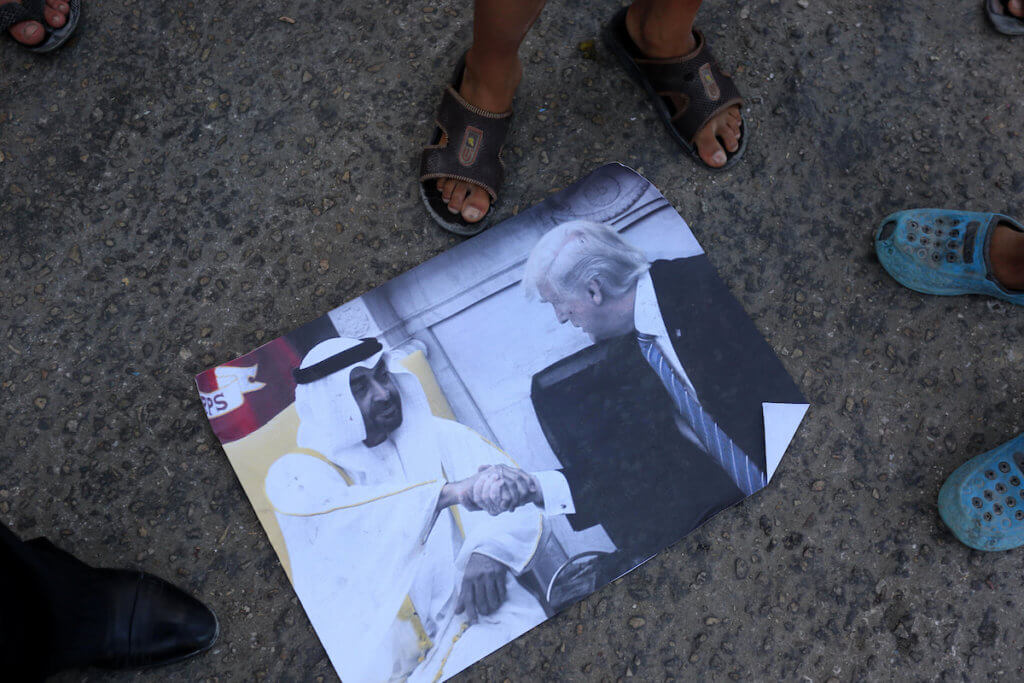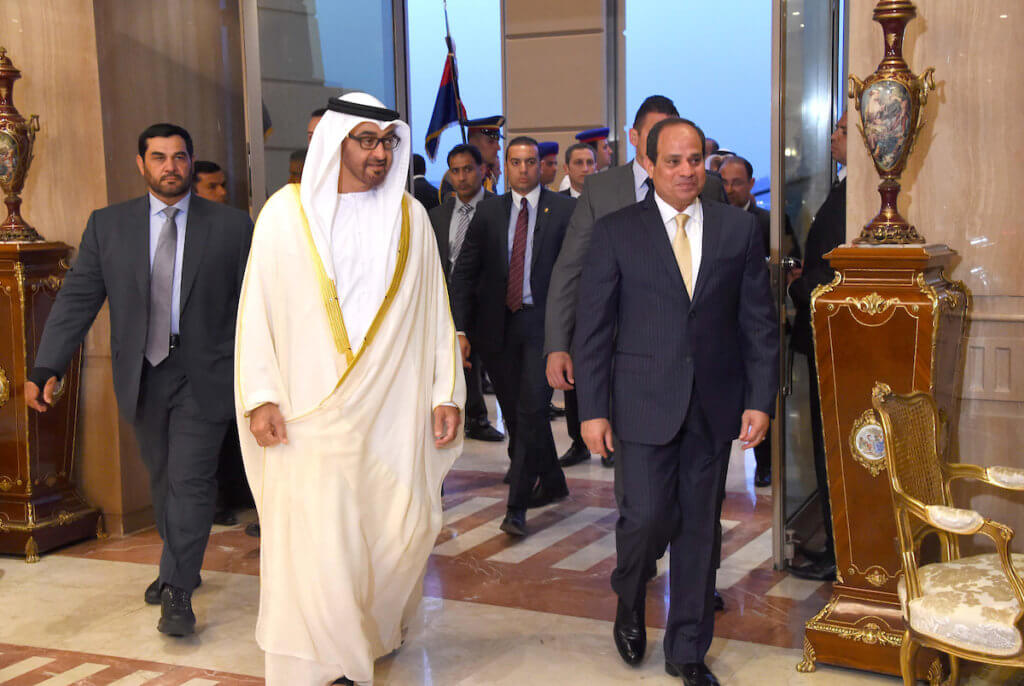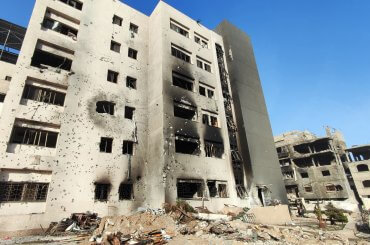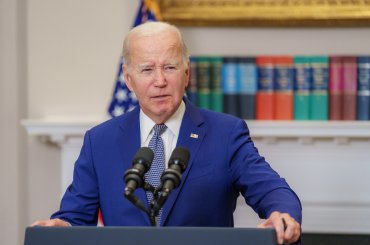Because we should care about what people are thinking about critical issues, polling is important. It opens a window so we can hear the voices of public opinion and make intelligent policy decisions. Sometimes, poll results affirm what we believe to be true and we feel gratified. On other occasions, the findings run counter to our expectations and we face a dilemma. We can either examine why our assumptions were mistaken or we can ignore the results that ran counter to our expectations and denounce the pollster. Shooting the messenger might make you feel good, but by ignoring information we don’t like we run the risk of making a bad situation worse.
I am prompted to write this piece because I’ve been reading criticisms of the UAE-Israel accord, many of which raise valid concerns about Palestinian rights and Israeli impunity. But what has troubled me are those critics who say that this agreement is out of sync with “the overwhelming majority of Arab public opinion” on how to achieve Palestinian rights. This is not true. Attitudes across the Arab World have undergone a dramatic change in the past few years and this new political reality must be understood.
In the past two decades, I’ve polled Arab opinion across the region. One constant has always been the centrality of Palestine. In 2002, for example, we found that this issue was ranked, along with employment and health care, one of the three top political concerns in most Arab countries (especially in Egypt and Saudi Arabia). It remained a priority up until a few years ago.
In September of 2019 we, at Zogby Research Services (ZRS), conducted another of our omnibus polls across the Arab World. Much of what we found was expected — with regard to Syria, Iraq, the failure of the Arab Spring, and concerns about Iran’s behavior in the region. What shocked me was the sea of change in attitudes toward the Israeli-Palestinian conflict. It ranked in the bottom tier of priorities in every country.
Our findings showed that most Arabs still fault the U.S. and Israel for the failure to resolve the Israeli-Palestinian conflict and continue to support the Arab Peace Initiative. But while a significant number in all countries affirmed their support for the API, they also said that Arab states should be doing more to advance this initiative. What was striking was that significant majorities in Egypt, Jordan, Saudi Arabia, and the UAE felt it would be desirable for some Arab states to pursue normalization even without peace. Opinion was evenly divided in Lebanon, with four out of ten Palestinians also agreeing.
Deep frustration with Palestinian National Authority
These responses were so out of line with previous results, that we repolled this question and followed it with open-ended questions to learn why respondents thought that normalization might be desirable. Our repolling reaffirmed the initial findings and the qualitative responses to the “opens” were instructive.

Many indicated frustration with the failure of Arabs to bring about justice for Palestinians and concern that the conflict was taking too many lives and causing too much suffering. There was also deep frustration with the Palestinian National Authority and a sense that maybe with normalization Arab states would gain some leverage over Israel enabling them to help secure rights for the Palestinian people. It was important to note that while in response to other questions in the survey, Arabs made clear their concern with Iranian behaviors, this issue never factored into their calculations about the desirability of normalization.
In June of 2020, in the midst of the furore over Israeli Prime Minister Netanyahu’s threat to annex much of the West Bank, we went back into the field to test Arab opinion on the question of normalizing before peace. The UAE Ambassador to the U.S. had just published an op-ed in an Israeli daily warning that Israel could have either normalization or annexation, Jordan’s King Abdullah had issued a dire warning about the consequences of annexation, 19 EU ministers had threatened sanctions if Netanyahu went ahead with his plans, and leading Democrats in Congress had sent letter stating their opposition. We polled in five Arab countries (Egypt, Jordan, Palestine, Saudi Arabia, and UAE) and Israel.
We found that significant majorities across the board believed that resolution of the conflict was important and were hopeful that a solution could be found in the next five years. These two factors combined led pluralities in four of these countries (except Palestine) to say they wanted to explore new approaches to convince the Israelis of the benefits of making peace with the Palestinians. They therefore favored some normalizing of ties with Israel as a means of breaking the deadlock. With this in mind, majorities in these same countries said that they supported the initiative taken by the UAE Ambassador to counter Israel’s threat of annexation. And decisive majorities expressed the strong view that if Israel proceeded to annex, then any steps toward normalization should end.
Evolving Arab opinion
Palestinian respondents were less supportive of normalization with only one-third favoring this approach. Nevertheless, almost six in ten Palestinians said that normalization would be desirable if it led to increased trade, investment in health care and education, and helped to further shared interests in water and food security.
The results in Israel were fascinating. Israelis also felt that resolution of the Israeli-Palestinian conflict was important, but were pessimistic it would be achieved in the near future. Opinion was divided on the question of annexation. But the UAE initiative and the warnings of King Abdullah moved opinion among those who favored applying Israeli sovereignty over parts of the West Bank from supporting to opposing — leaving only a hard-core 16% in favor of annexation. In fact, when asked what would be the most compelling reason to oppose annexation — alienating Arab countries ranked higher than losing support from the Europeans or even political leaders in the U.S.
As someone who, for the past five decades, has been a staunch advocate for justice for Palestinians and who has for the past two decades taken Arab public opinion seriously — I’ll admit that I was confounded by these findings. At the same time, I know they must be considered and understood. Any evaluation of the UAE-Israel agreement must keep this context of evolving Arab opinion in mind.
There should be the recognition given to the fact that the UAE initiative did impact Israeli public opinion and policy. And while Arabs still care about the fate of the Palestinians, attention must be given to their frustration with the PNA, their concern that strategies that have been tried up until now have failed, and their desire to try a new approach to peacemaking.
There are good reasons for those who support Palestinians to be concerned that Israel may pocket this move toward normalization and then continue apace its land-grabbing oppressive rule. And, this should not bring an end to our opposition to Israel behaviors toward the captive Palestinian people — especially when there are significant shifts in U.S. opinion in favor of Palestinian rights. It may very well be possible that the UAE will have some leverage they can use to not only stop annexation, but to alter Israeli behaviors. This — securing justice for Palestinians — is what Arab opinion has told us they hope will happen.



It is extremely disappointing that these Arab nations are even considering making nice with Israel. Yes, I agree that it is primarily because of the US/UK for enabling Israel, and providing it with aid without conditions, and the deadly weapons it uses mostly against unarmed civilians (their own) yet the wealthy Arab nations had the power to demand that the Palestinian issue be resolved, but chose to kiss up to the US/UK ignoring the plight of the Palestinians, and some even covertly work with the occupier that they have condemned, and criticized, for treating the Palestinians so badly, the ongoing occupation, and the shameful theft of lands.
Is their hatred for Iran so much, that they are willing to break bread with the zionists?
Well, that’s news! Thanks for this corrective, James Zogby. It doesn’t change my strong opposition to normalization (as understood in anti-Zionist discourse), but it’s important to understand that this is far from a majority view in the Arab world, and that even some Palestinians are looking with favor on some form of normalization. It’s ironic that this shift in opinion seems to be tied in part to frustration with the dismal record of failure by the PA (aka PNA), Israel’s security subcontractor in the occupied territories.
It’s been a while. The generation of Arab rulers that was active in 1948, 1967 and 1973 is gone or on its way out. It’s a generational change. Facts on the ground are the reality for most of these rulers. Israel’s existence is the starting point for most of them. They were forced to mouth platitudes while their elders were around. No peace, no normalization, Zionist entity, blah blah blah. Once the elders left the stage as happened in UAE with the passing of Zayed Bin Sultan the next generation can’t wait to abandon the old ghosts. Same thing will happen in Saudi once Salman dies. And the amazing thing to watch is how brittle and fragile this supposed Arab consensus was against peace or normalization with Israel. The Palestinians really took it for granted and stretched it out way past the breaking point. They thought normalization was theirs to offer or withhold. They were wrong. This is going to cost them because now they bring even less to the negotiating table.
1 of 2
Meanwhile:
https://www.aljazeera.com/news/2020/08/uae-nixes-meeting-israel-35-arms-deal-row-report-200824235236086.html
Al Jazeera, August 25/20
EXCERPTS:
“UAE nixes meeting with US, Israel over F-35 arms deal row: Report”
“Emiratis reportedly angered by Netanyahu’s public denial of the deal and his vow to lobby US Congress to oppose it.”
“The United Arab Emirates has cancelled a planned meeting with the United States and Israel over differences on the possible sale of American F-35 fighter jets to the Gulf state opposed by Israeli Prime Minister Benjamin Netanyahu, a report said on Monday.
“According to the US news website, Axios, the UAE shelved a planned meeting with the US and Israel on Friday, after Netanyahu came out publicly to deny knowledge of the proposed arms deal between Washington, DC and Abu Dhabi.
https://www.aljazeera.com/news/2020/08/bahrain-rejects-push-normalise-relations-israel-200826143913425.html
Al Jazeera, August 26/20
“Bahrain rejects US push to normalize relations with Israel”
EXCERPT:
“In talks with US Secretary of State Pompeo, King Hamad says Bahrain is committed to the creation of a Palestinian state.”
“Bahrain’s king has told visiting US Secretary of State Mike Pompeo that the Gulf state is committed to the creation of a Palestinian state, according to state media, in an implicit rejection of Washington’s push for Arab countries to swiftly normalize ties with Israel.” (cont’d)
2 of 2
https://www.palestinechronicle.com/in-blow-to-us-efforts-morocco-says-no-to-normalization-with-israel/
The Palestine Chronicle, August 25/20
“In Blow to US Efforts, Morocco Says No to Normalization with Israel”
EXCERPT:
“Morocco will not follow the lead of the United Arab Emirates and normalize with Israel, the country’s Prime Minister Saad-Eddine El-Othmani said during a high-level political meeting late on Sunday.
“El-Othmani told members of his Justice and Development Party that Morocco ‘refuses to normalize relations with the Zionist entity (referring to Israel) because this will embolden it to further breach the rights of the Palestinian people.'”